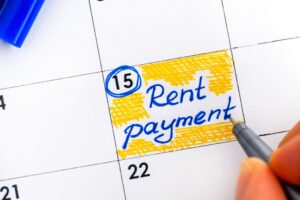Federal Court Approves Settlement Agreement Between Public Housing Tenants And Chicago Housing Authority
Settlement Ensure Tenants are Aware of “Minimum Rent” Policies
Monday, United States District Court Judge Matthew F. Kennelly approved a landmark settlement agreement between a class of public housing residents and the Chicago Housing Authority (CHA). The settlement ensures that all public housing residents will receive adequate notice of their right to request a “hardship exemption” to the minimum rent requirement, and will provide financial relief in the form of rent adjustments and/or credits to thousands of residents who were charged the minimum rent when they were entitled to an exemption.
Federal law authorizes CHA to charge its lowest-income public housing residents so-called “minimum rents” of $75 per month. But that same law protects families who cannot afford this amount by giving them the right to request a hardship exemption from the minimum rent requirement. The public housing residents alleged that CHA did not take steps to reasonably and sufficiently inform them of this right.
Legal Action Chicago, together with lawyers from the National Housing Law Project and McDermott Will & Emery, notified CHA about this problem and over the course of several months worked with the agency to improve CHA’s minimum rent practices and provide residents with significant financial relief.
Under the terms of the approved settlement, CHA will take steps to ensure that every resident knows about their right to request, and the process for requesting, an exemption to the minimum rent requirement. CHA will provide all public housing residents with a plain-language information sheet regarding its minimum rent policies and procedures, train its property managers on such policies and procedures, amend its notices of rent adjustment, and ensure that no family is evicted for nonpayment of the minimum rent.
CHA will also remove from every public housing resident’s ledger all unpaid minimum rent charges that have accrued since February 2016. Finally, CHA will provide to every qualifying public housing resident a rent credit equal to the minimum rent payments that resident has made since April 2020.
Josette Oliver, one of the three named-plaintiffs, says the proposed settlement finally addresses a problem that has for years affected thousands of CHA residents. “Most of the people who were charged the minimum rent couldn’t afford it, but they didn’t know they could ask for an exemption. Now everyone will know their rights, and I hope no one will ever again be charged rent they cannot afford.”
John Bouman, the Director of Legal Action Chicago, praised CHA for its willingness to take meaningful steps to correct past mistakes, create better practices that comport with basic principles of due process, and make its residents financially whole. “Every year CHA was charging more than 1,500 of its lowest-income residents minimum rents that most could not afford. Some of these residents borrowed money or went without food to pay the minimum rent. Others didn’t pay the amount demanded, and some of them got evicted for nonpayment. To CHA’s credit, it did not deny the problem when we brought it to their attention. Instead, they worked with us to create a solution.”
Dan Campbell, a partner at McDermott and a Board Member of Legal Aid Chicago, is proud of his firm’s work on behalf of the CHA tenants. “We are committed, though our pro bono work, to identifying systemic problems that affect people who need but cannot afford legal representation, and taking swift action to ensure they get meaningful access to the legal system and the relief they deserve. This case demonstrates how we collaborate with great organizations to deliver vital injunctive and financial relief to thousands of Chicago residents, like CHA’s public housing tenants.”
Kate Walz, Associate Director of Litigation at the National Housing Law Project, said this is a nationwide issue. “I hope the agreement we negotiated will lead other public housing authorities to create better minimum rent policies and thereby ensure that all qualified tenants receive the hardship exemptions to which they’re entitled, and that they so desperately need.”
Read the full news release from the Legal Action Chicago and National Housing Law Project.

